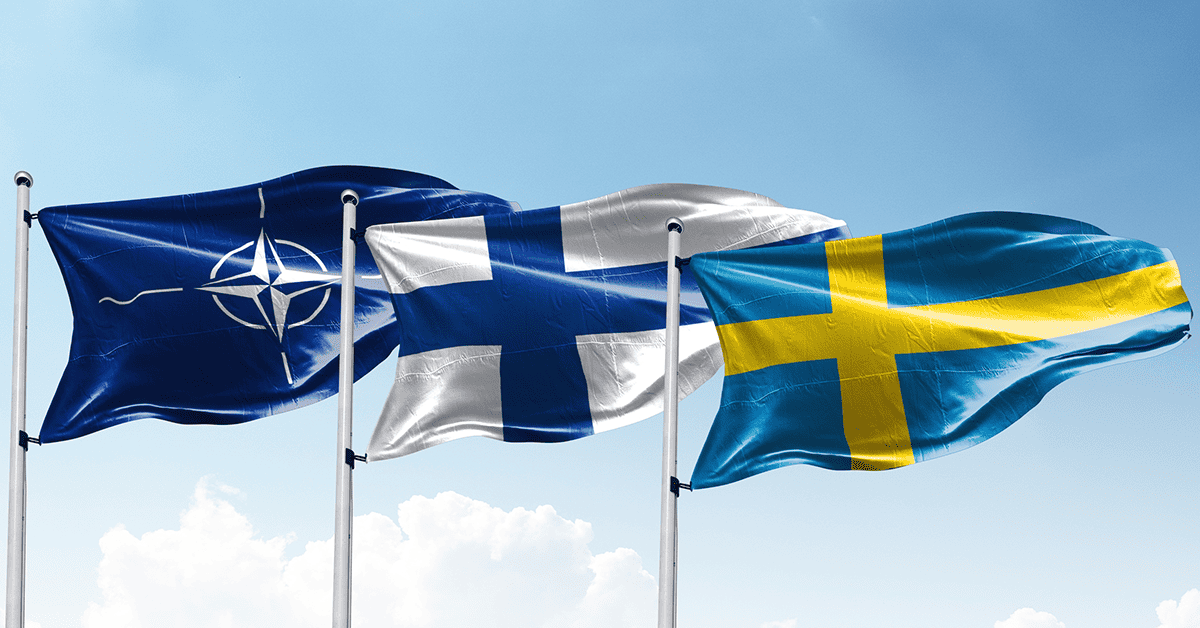Finland's and Sweden's joint application for NATO membership entails serious economic changes.

The historic decision by Sweden and Finland to join the North Atlantic Treaty Organization (NATO) will have an immediate impact on their trade and investments in Russia. The two formerly neutral Nordic countries are responding to the radically changed security landscape in the High North and Baltic Sea neighborhood following Russia’s invasion of Ukraine.
The ongoing retaliatory threats by Moscow to impose sanctions on Finnish and Swedish companies with operations in Russia are taking place against the backdrop of a mass exit of Nordic capital. The altered relationship between the NATO applicant states is certain to hurt Finland the hardest. With a border extending to 830 miles (1,340 km), Finland’s longstanding economic ties to Russia are the deepest of any Nordic state.
Nordea singled out Finland for special mention in its Nordic Economic Outlook released on May 11. The bank downgraded Finnish GDP growth in 2022 from 3% to 2% in 2022, noting the geopolitical situation linked to Russia’s war with Ukraine as the primary malefactor.
“The Nordic economies are affected by the war in Ukraine. However, they all benefit from having had a strong starting point before the war, when the risk of overheating was the common Nordic economic narrative. Finland will be affected the most, Norway the least,” Nordea said in a statement.
LIVE: Finnish finance minister and Swedish finance minister discuss NATO membership applications https://t.co/vavGN4PneJ
— Reuters (@Reuters) May 24, 2022
While the economic ripples of Russia’s war on Ukraine are being felt across the Nordic region, future membership in NATO is expected to produce new and valuable business opportunities for Sweden’s and Finland’s leading defense groups; namely Saab, Norma Precision AB, CybAero Ab, Patria Group, Sisu Oy, SAKO Oy and Nammo Oy. Swedish and Finnish companies—with offerings of combat aircraft, stealth submarines, armored vehicles and advanced artillery systems—have traditionally found it challenging to compete with rivals in NATO-members states for lucrative contracts.
The Nordic countries—with Finland and Sweden to the fore—will face an extended period of adjustment as companies that exited Russia readjust their operations, a development that includes relocating manufacturing plants, winding down long-term investments and finding new markets to supply raw materials.
Adjustments will be far-reaching in some instances. The Finnish state energy group Gasum reacted to Russia’s decision to cease gas exports to Finland on May 21 by leasing a floating Liquefied Natural Gas terminal. Gasum’s CEO, Mika Wiljanen, said the Kremlin endorsed action presented the company with an opportunity to shed its reliance on Russian LNG. “The new LNG terminal will enable Finland to break free from Russian gas,” Wiljanen said.
Fortum, Finland’s largest state-owned energy company, bolstered a plan to execute a “controlled exit” from Russia in May, a process that will involve the sale of production plants, and the discontinuation of new investments and the financing of subsidiaries. Among the Fortum owned assets for sale are power plants operated by its subsidiary Unipro.
“A full exit from Russia will take time,” said Markus Rauramo, the CEO of Fortum. In March, the company wrote-down $1.05 billion in financial losses linked to its investment in the abandoned Nord Stream 2 pipeline project.



